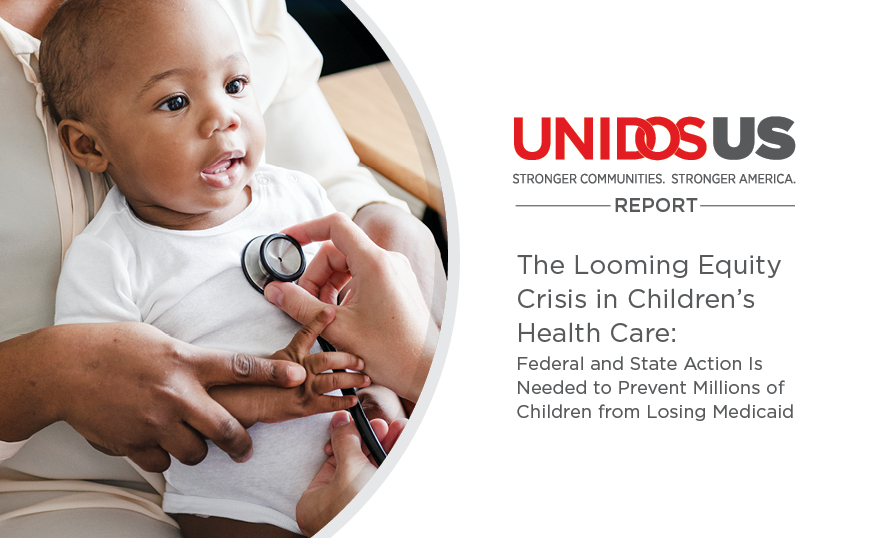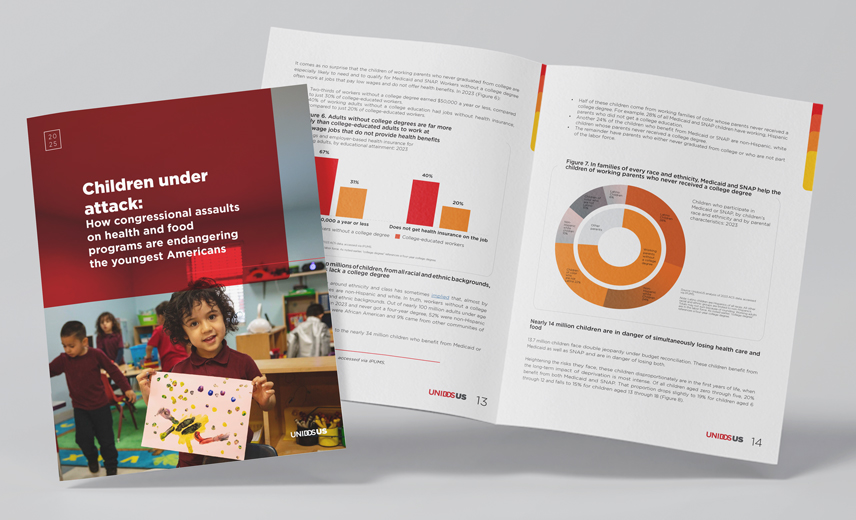Shrinking the Medicaid Cliff: How Congress Can Prevent Health Equity Disaster by Protecting Eligible Families’ Health Care

When the Biden-Harris Administration ends the COVID-19 Public Health Emergency, Medicaid programs will be allowed to terminate beneficiaries’ coverage for the first time since February 2020.
If Medicaid operates as it did in the past, a major civil rights and health equity disaster will result. According to Health and Human Services (HHS) research, 15 million people will lose Medicaid if the program returns to typical pre-pandemic operations.
That number is:
- More than seven times the size of history’s largest one-year drop in Medicaid coverage.
- More than six times the number of people who are denied coverage because they fall into the “Medicaid coverage gap.”
Once Medicaid terminations resume, the majority of those projected to lose coverage will be people of color, including 4.6 million Latinos, 2.2 million African Americans, and nearly a million Asian Americans and Pacific Islanders. An estimated 5.3 million children will lose Medicaid, three-fourths of whom will remain eligible but be terminated for administrative reasons.
Those losses would nullify many of the coverage gains federal policymakers have achieved in recent years. Since 2020, the number of uninsured fell by 5.2 million. These historic gains would be offset or erased by the end of President Biden’s first term if 15 million people now lose Medicaid.
To mitigate this major civil rights disaster, Medicaid must operate differently than in the past. Three changes to the Medicaid statute are needed to create clear performance expectations and to give HHS authority to protect families:
- A state’s administrative terminations should be placed on hold if the state does not achieve target outcomes or if HHS finds state policy is causing the preventable termination of eligible people.
- The outcome standards that must be achieved for a state to terminate Medicaid for administrative reasons should represent average state performance before the pandemic. Families should not be terminated because of missing paperwork until their state has done at least an average job eliminating needless paperwork.
- No state should be allowed to terminate a SNAP recipient who is a child, a pregnant or post-partum beneficiary, or an expansion adult, unless recent earnings records show income above Medicaid levels.
America’s low-income families are rapidly approaching a massive Medicaid cliff. Congress must act now to dramatically shrink the magnitude of loss, protecting health care for millions of eligible people who disproportionately live in communities of color.






